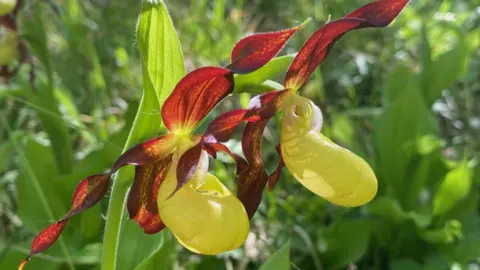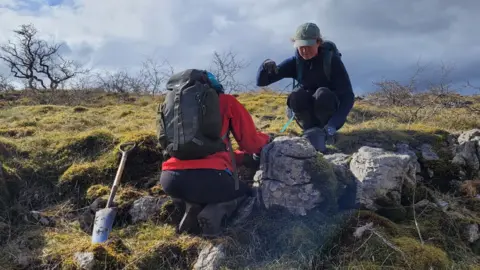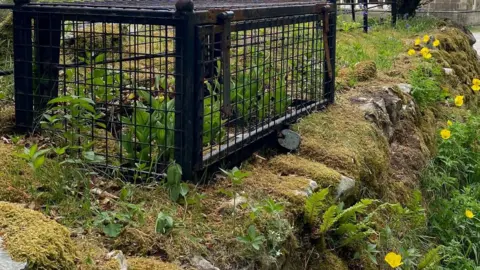Rare orchid returns from brink of extinction
 Kevin Walker
Kevin WalkerA project to bring back one of the UK's rarest wildflowers has shown its first signs of success, experts said.
The lady's slipper orchid was thought to be extinct by the early 20th Century, until a single plant was discovered in a remote area of the Yorkshire Dales in 1930.
Its location was kept secret, with volunteers providing round-the-clock monitoring over several decades to prevent the plant being dug up and stolen.
A scheme was launched two years ago to plant hand-reared orchids, with a plant discovered last June the first to germinate "of its own accord" since 1930, according to the Yorkshire Wildlife Trust (YWT).
"The lady's slipper is a real icon of limestone habitats," Jonathan Leadley, from YWT, explained.
"Where we've got limestone geology there's often a wealth of wildlife, but we've lost so much of the wildlife from these habitats.
"This is a real flagship, like a superstar."
Efforts to boost the population began in the 1990s, with a plea for help that resulted in a small number of privately-owned, wild-sourced orchids being offered as part of a captive breeding programme.
Plants were reintroduced to locations in the north of England - which were also kept secret to avoid the ongoing threat of theft - with the project led by YWT since 2023.
Orchids were propagated in Kew Gardens' laboratory, with young plants then nurtured by a network of volunteer specialists managed by the National Trust.
 Graham Standring
Graham StandringMike Fay, Kew senior research leader, said it had been a "flagship" conservation scheme for many years.
"The appearance of a seedling is incredibly exciting and offers us hope," he said.
Kevin Walker, from the Botanical Society of Britain and Ireland, paid tribute to the "hundreds of volunteers and enthusiasts who have carefully nurtured [the plant] back into the wild".
 Kevin Walker
Kevin WalkerMr Leadley said that while "only a minority of people" stole plants, it was "certainly" still a threat.
"When all this effort is being put in by lots of people to try and bring a species back from the brink of extinction, we really don't want all of that effort to go to waste by a selfish individual pinching that plant," he said.
"We've got to keep it guarded for now, but hopefully at some point in the future there'll be so many of these plants out there that everybody will be able to enjoy them."
Listen to highlights from North Yorkshire on BBC Sounds, catch up with the latest episode of Look North.
